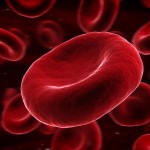 I wrote a post a while back on workout finishers that aid fat loss by increasing resting metabolism. You can read about it here.
I wrote a post a while back on workout finishers that aid fat loss by increasing resting metabolism. You can read about it here.
Let me reiterate, increasing resting metabolism IS the holy grail of fat loss. It effectively allows you to burn more calories without doing exercise. Often you will hear people talking about increasing metabolism and burning more fat/energy. But what surprises me is that people never seem to ask, “So where does all this energy expenditure go?”
If you paid attention to Physics class, you’ll be familiar with the old adage “energy is never lost, it just changes form”. So if your metabolism increases, energy use is increased, it must be spent in some way in the body.
In this article I will discuss some of the ways the extra energy is burnt in the body as a result of increased metabolism.
Increased energy
 The most obvious benefits of higher metabolism is that you have increased energy levels, your body has access to more nutrients so you’re more awake and you can get more things done. Increased energy levels also combat depression. It allows you to get a better night’s as your body tires more during the day. People with low energy throughout the day find it difficult to sleep at night and maintain a healthy sleep clock because the body never feels tired enough to sleep on time.
The most obvious benefits of higher metabolism is that you have increased energy levels, your body has access to more nutrients so you’re more awake and you can get more things done. Increased energy levels also combat depression. It allows you to get a better night’s as your body tires more during the day. People with low energy throughout the day find it difficult to sleep at night and maintain a healthy sleep clock because the body never feels tired enough to sleep on time.
Decreased chance of disease
Slow metabolism has an adverse impact on your thyroid, because of improper secretion of hormones in the body. The hormones are like messengers in the body which send signals from one organ to another. As you can imagine a slow production of hormones slows down vital organ functions which can have adverse affect on your body. Hypothyroidism has been known to cause heart disease.
Brain function
 This is somewhat linked the increased energy point above, but needs emphasis on its own. The brain uses roughly 20% of all energy consumed. The bulk of which is used to keep neurons firing, the remaining is used for cell maintenance. When most people talk about nutritional requirements often they’re just interested in feeding the body, when was the last time you considered nutrition for the brain? Seldom do you ever hear about the brain’s needs. Which is without doubt more important. An increase in metabolism means that the brain can work more and faster too.
This is somewhat linked the increased energy point above, but needs emphasis on its own. The brain uses roughly 20% of all energy consumed. The bulk of which is used to keep neurons firing, the remaining is used for cell maintenance. When most people talk about nutritional requirements often they’re just interested in feeding the body, when was the last time you considered nutrition for the brain? Seldom do you ever hear about the brain’s needs. Which is without doubt more important. An increase in metabolism means that the brain can work more and faster too.
Tissue repair
 Every cell in your body needs maintenance and upkeep. From your brain, heart and lungs to your skin, eyes and hair. A faster metabolism means that cell repair can occur faster. Physical activity plays a big part in this too. After your exercise, the cells in your muscles need repair. A faster metabolism can tend to vital muscle cell repairs. Though with regards to metabolism this is a bit of a chicken and egg situation, as the bodies demand for energy will increase metabolism too.
Every cell in your body needs maintenance and upkeep. From your brain, heart and lungs to your skin, eyes and hair. A faster metabolism means that cell repair can occur faster. Physical activity plays a big part in this too. After your exercise, the cells in your muscles need repair. A faster metabolism can tend to vital muscle cell repairs. Though with regards to metabolism this is a bit of a chicken and egg situation, as the bodies demand for energy will increase metabolism too.
So now you know how an increase in metabolism impacts your body, it’s not just superficial, it can really improve the quality of your life, help you in your career/studies and improve your relationships and family life too.
Ways you can increase metabolism
1. Exercise: Exercise helps tremendously in increasing metabolism; it fills your body up with feel good hormones like dopamine and also increases your resting metabolism. Notice how after your kettlebell workouts you feel so energised? This is particularly noticeable by people who begin exercising after a long layoff, or conversely, active people who are forced to take time off after illness or injury.
If you haven’t already get the kettlebell basics 101 manual to begin training using kettlebells.
2. Diet: There are certain foods that can help improve metabolism, green tea, Dijon Mustard, White wine vinegar, grapefruit etc. In fact there’s a whole cookbook dedicated to high metabolism meals. You can even make your own deserts and TV snack foods that increase metabolism too. I’ve taken great meal inspirations from Karine Losier’s Metabolic Cooking course.



Leave a Reply